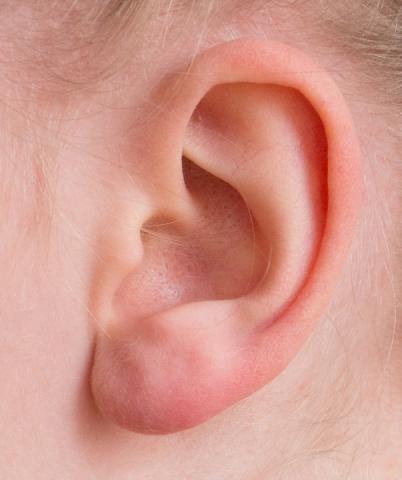
What is hearing Loss?
Hearing loss is deafness one who has in his/her ears.
Hearing loss is measured by pure tone audiometry. (Average at 500, 1k, 2 kHz)
Hearing loss is categorized by its severity.
Mild Hearing loss
Speech is normal; conversation is easy; has difficulty hearing distant noises. 25 to 54 dB (decibel).
Moderate Hearing Loss
Speech is impaired; has difficulty hearing normal conversation. 55 to 69 dB
Severe Hearing Loss
Cannot participate in conversations although he/she may catch the occasional word; hearing aids are helpful. Cochlear Implant is suitable.
70-89 dB
Profound hearing loss
Cannot use hearing aid to help communication; hearing aid may help but it is limited in its ability to permit normal speech. (>90 dB )
What causes hearing loss?
Hearing loss is also present from his /her Birth.
Numerous factors may be responsible for this.
Heritable: The most common congenital factor is genetic/heritable. A child with one or both parents with hearing impairment can inherit the leading gene for hearing loss. It is possible to inherit hearing loss even if a grandparent is deaf.
Infections: Diseases like jaundice, rubella, pox in the prenatal, pre-natal and post-natal periods can affect hearing.
Problems relating to birth: Prematurity or anoxia ( “blue babies”/lack of oxygen at the time of birth)
Malformation: A part of the hearing mechanism may be malformed.
Mother’s condition during pregnancy: Some conditions affecting the mother, such as toxemia, syphilis, Rh incompatibility, or diabetes can affect hearing of the foetus.
Hearing loss may be acquired after birth, at any age. These may be reversible or
Permanent. Some factors that produce hearing loss are:
Infections:
Infections in the ear can cause hearing loss. Viral or bacterial infections like
Encephalitis, Chicken pox, Measles, Mumps, Meningitis, Syphilis etc may also cause
hearing loss in some people.
Medication:
Medicines called “ Ototoxic” drugs are capable
of causing reversible or permanent hearing loss in some people. Salicylates ( Aspirin
containing medicines), Non steroid anti inflammatory drugs, some Antibiotics
(Aminoglycosides, Erythromycin, Vancomycin), Diuretics, Chemotherapy agents, Quinine
are some Ototoxic drugs.
Trauma:
Head injury, concussion or trauma that affects the hearing mechanism. Some
times water sports can, due to pressure differences, rupture parts in the ear, leading to
hearing loss.
Noise:
Continued exposure to noisy environments like factories or blast sites can affect
hearing. At first the high frequency hearing is affected. If exposure continues, hearing
loss is progressive.
Age:
Some people experience hearing loss as they become older. This condition is called Presbycusis.
Others:
There are some rare conditions like tumour in the Acoustic nerve or
Otosclerosis (hardening of bones/or parts of the hearing mechanism).
Hearing impairment can also occur abruptly, without any apparent cause!
Conductive Hearing Loss
External or middle ear problems, which are often mechanical in nature cause hearing loss. This can usually be corrected by medication or surgery.
Middle Ear Infections (Otitis Medea) are a common cause.
Ear discharge or accumulation of ear wax can also cause hearing loss.
Absence or malformation of parts of the external or middle ear can cause conductive Hearing loss.
Sensoneural Hearing Loss
Problems in the inner ear involving the cochlea, the hair cells or nerve cells cause Sensoneural hearing loss. This type of hearing loss is irreversible. This can be congenital or acquired. Neither medication nor surgery can make the patient regain the ability to hear. However, hearing devices and implants are used, along with auditory training, to help these patients to hear.
- Log in to post comments
